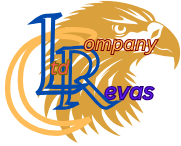As the technological revolution continues, audit firms are faced with the challenge of harnessing and utilizing these technologies to benefit their clients. A lot of these cutting-edge technologies aren’t options, but necessary for a future in auditing.
The most advanced technology tools that are making an impressive impact on auditors are machine learning, data analytics and robotic process automation. These tools enable auditors to gain a deeper perspective of client processes, inventory and system controls that they can communicate with boards and management.
Blockchain is yet another emerging technology that can reduce the time required for clearing financial transactions to only a few hours. This will enable continuous risk assessments to be carried out during the auditing period rather than a single year-end assessment.
Argus is https://data-audit.net/ an example of a program which makes use of artificial intelligence to decrease the amount of manual review and processing required during an audit. It makes use of machine-learning and natural language processing to efficiently search electronic documents. This lets auditors focus their attention on more important tasks, like assessing risks and confirming results.
There are still some obstacles that can prevent the adoption of new technologies. In particular, at firms where compensation is based on billable hours, it can be difficult to find the time to experiment with the latest technology tools. Additionally, the cost of the initial investment as well as ongoing support and maintenance for tech can be a significant consideration. However, if there is a continuous collaboration between audit firms regulators, standard setters and audit firms These challenges can be overcome.
